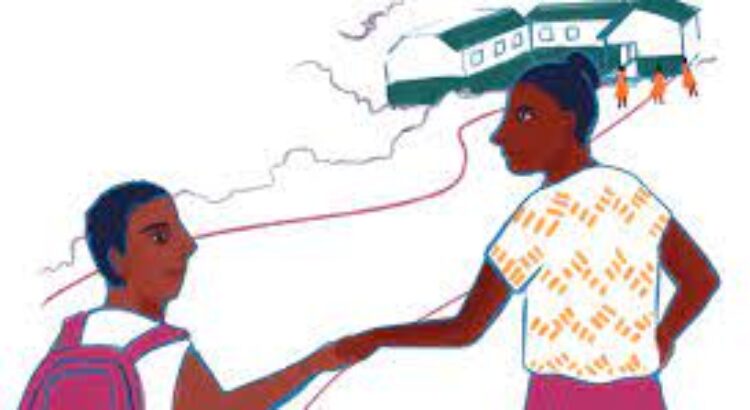By Vicky Ford MP, Minister for Africa, Latin America and the Caribbean, United Kingdom
Being able to read sets children on a path to success: in school, at work, wherever life may take them; and provides choice for them on that journey. Yet six in ten children globally are denied this right. The picture is worse in low-and middle-income countries, and in sub-Saharan Africa, almost 90 per cent of ten-year-olds lack this basic reading skill.
Vast numbers of young people are out of school altogether – 244 million, even before the pandemic. Girls and children living with a disability are disproportionately affected. Following the impact of COVID-19 and school closures, the UK’s work on girls’ education, is even more important. A missed education snatches away the bright future that every child deserves. It is a catastrophic waste of energy, ideas and opportunities.
Education should never sit at the bottom of an agenda. It should be a top priority, given its ability to solve global challenges and empower individuals and communities. This is why, under our Presidency, the UK inspired G7 leaders to endorse two new global targets for low and lower-middle-income countries: Getting 40 million more girls into school, and 20 million more girls reading by age ten.
We called on the rest of the global community to help achieve these milestones, which we want to hit by 2026; transforming lives around the world. Meanwhile, we will support countries to achieve their ambitious commitments as they work towards Sustainable Development Goal 4 on quality education and continue backing the World Bank’s learning poverty work. Together, we will drive progress towards quality education for all. At the forefront of our efforts will be the most marginalised and vulnerable girls. Those most at risk of being left behind through poverty, disability, or the effects of conflict or natural disaster.
 This report is the first in an annual series, tracking progress against the two G7-endorsed global objectives on girls’ education. It demonstrates that transformation is possible, but this will take an enormous effort on a global scale. It will require effective policies, targeted interventions, and quality data. Some countries are leading the way to ensure that all girls are in school and learning, and we must learn from these examples.
This report is the first in an annual series, tracking progress against the two G7-endorsed global objectives on girls’ education. It demonstrates that transformation is possible, but this will take an enormous effort on a global scale. It will require effective policies, targeted interventions, and quality data. Some countries are leading the way to ensure that all girls are in school and learning, and we must learn from these examples.
We must also strive towards the broader goal of gender equality in education – and through education – globally. Schools have a pivotal role to play in challenging harmful gender norms and preventing violence. They must deliver a safe environment for all children, offering equal opportunities for all to learn.
Our focus will remain on those who are hardest to reach:
- The girl born into poverty; who lives in a remote rural area.
- The girl born in a refugee camp; or caught up in conflict.
- The girl who is disabled; or malnourished.
If we can reach her and ensure she is safe, learning and thriving in school, then we can do the same for all children. This is why we will continue our urgent and decisive action to help ensure that every child, everywhere, gets the education they deserve.
The post Every child deserves to be able to read a simple text by age ten appeared first on World Education Blog.






 Users Today : 39
Users Today : 39 Total Users : 35460056
Total Users : 35460056 Views Today : 54
Views Today : 54 Total views : 3418685
Total views : 3418685